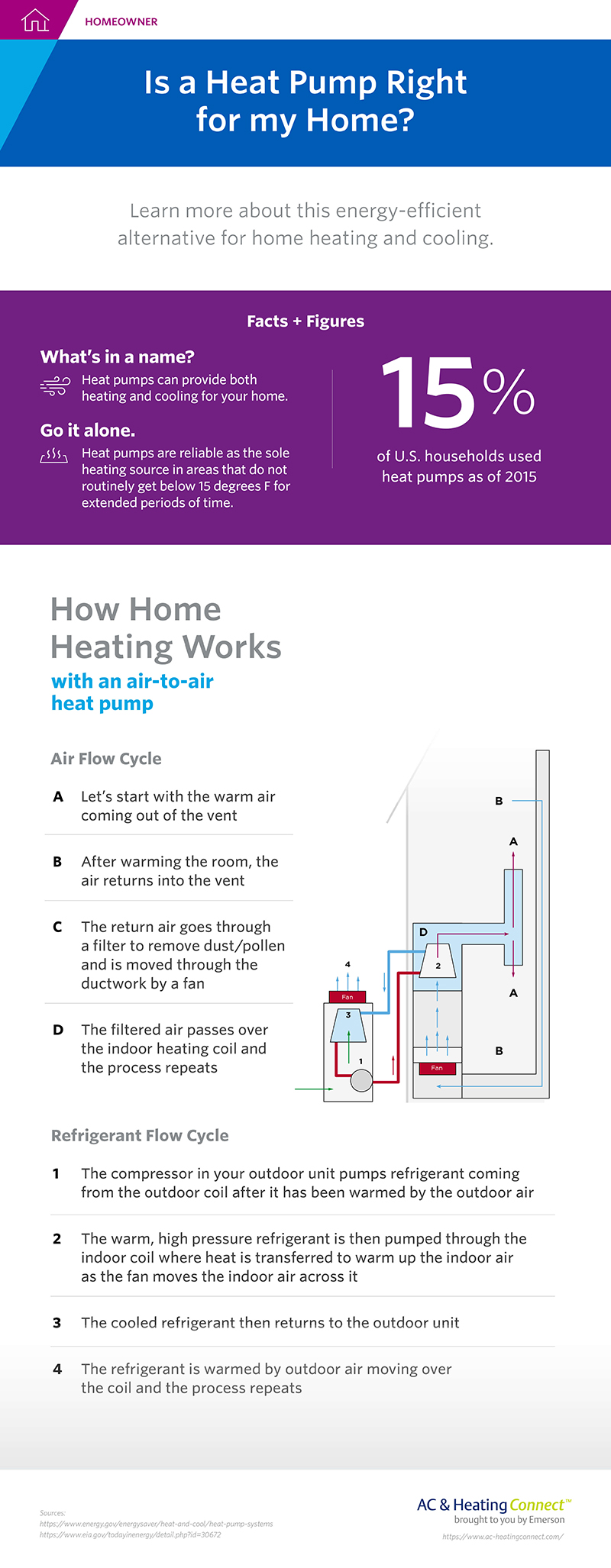We’re seeing more and more questions from homeowners about heat pumps. What are they? How do they work? Are they right for me? While heat pumps are fairly common in the warmer states they are less well-known in other parts of the country, that is quickly changing.
What is a Heat Pump?
Heat pumps are an energy-efficient alternative to furnaces and air conditioners. They provide both heating and cooling using electricity and heat transfer, the natural tendency for heat to shift from spaces with higher temperatures to areas with cooler ones.
In the winter, a coil of tubing filled with refrigerant coaxes thermal energy from the outdoor air. After warming and vaporizing into a gas, it is drawn inside to the pump’s interior unit and warms surrounding air that is then fanned throughout the home.
Understanding the Functionality of Heat Pumps
Here’s a closer look at just how a heat pump works:
In the summer, heat pumps can cool your home by reversing this process. Coils pull thermal energy from the inside of the home to cool the interior and deposit warm thermal energy outdoors.
As you can see, the process uses electricity and thermal dynamics to warm and cool the home, as opposed to coal, oil or natural gas.
Heat Pump Benefits
- By having one system that provides heating and cooling you can save on upfront equipment costs by not purchasing a furnace. There are also heat pump rebates and tax credits available for those who qualify.
- Combining the mechanical efficiency with off-peak seasonal electricity rates in the winter months means lower energy costs for heating.
- Because heat pumps use electricity efficiently rather than burning fossil fuels, they are generally cleaner and more environmentally friendly.
Heat Pumps with Secondary Heating Sources
While heat pump technology is becoming more and more efficient at heating and cooling, there are still circumstances where a furnace or secondary heat source will be necessary. In areas of the U.S. that routinely get below 15°F for extended periods of time, it might be beneficial to use the heat pump with an auxiliary heating solution such as a conventional gas furnace. Ask your contractor about the latest high-efficiency heat pumps and dual fuel systems available for your region of the country.
With proper upkeep and maintenance, a heat pump air conditioner that does both heating and cooling can provide a low cost, high-efficiency and environmentally friendly solution for your comfort needs all year long.
Do you know anyone that has recently installed a heat pump? Let us know if you’re considering one!
Read Next: 5 Ways to Increase the Efficiency of Your Home Heat Pump System




